Israel and the Palestinians: Can the settlement issue be solved?
- Published
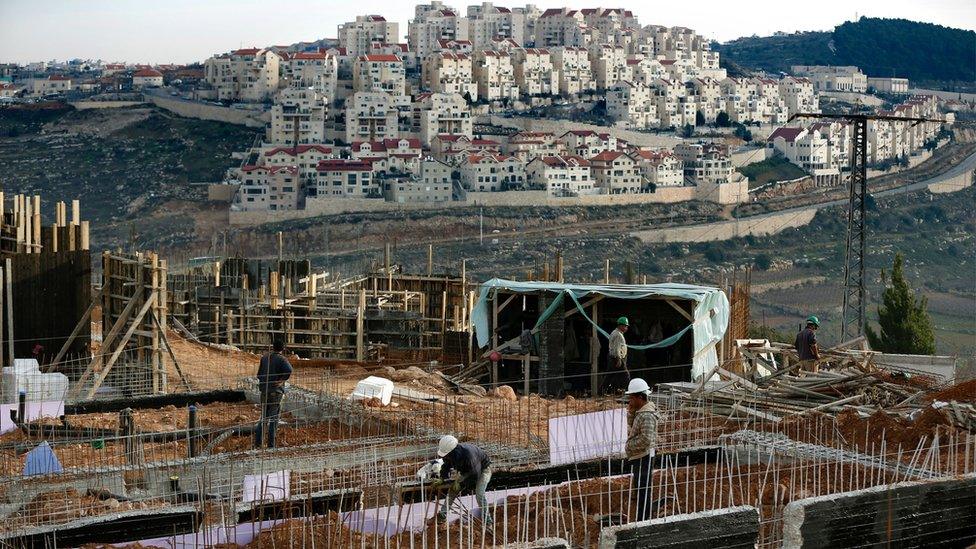
Israel's prime minister has vowed never to remove settlements again
The issue of Jewish settlements in the West Bank and East Jerusalem has long been a major source of dispute between Israel and the Palestinians, and most of the international community. The Trump administration has now, however, stated that settlements are not inconsistent with international law.
Here is a brief guide to what it is all about.
What are settlements?
Settlements are communities established by Israel on land occupied in the 1967 Middle East war.
This includes the West Bank, East Jerusalem and the Golan Heights. The West Bank and East Jerusalem had previously been occupied by Jordan since the 1948-49 Arab-Israeli War.
According to the Israeli settlement watchdog Peace Now, there are 132 settlements and 113 outposts, external - settlements built without official authorisation - in the West Bank. The group says more than 413,000 settlers live there, with numbers increasing year on year.


It says there are 13 settlements in East Jerusalem, inhabited by about 215,000 settlers.
Israel also established settlements in the Gaza Strip, seized from Egypt in the 1967 war, but it dismantled them when it withdrew from the territory in 2005. It also built settlements in the Sinai Peninsula, seized too from Egypt in 1967, but removed them in 1982 as part of a peace agreement with Cairo.
There are also dozens of settlements on the occupied Golan Heights, captured from Syria in the 1967 war.
Built-up settlement areas occupy about 2% of the West Bank but critics point out that the land controlled by settlement activity, such as agriculture and roads, amounts to much more than that, external and requires a heavy military presence.
Settlers themselves choose to live in these communities for a range of reasons - from economic, encouraged by government subsidies, to religious, based on the belief that God gave the land to the Jewish people.
Why are settlements so contentious?
What happens with settlements has proven to be one of the most intractable issues between Israel and the Palestinians, and rows about them have caused the collapse of numerous rounds of peace talks.
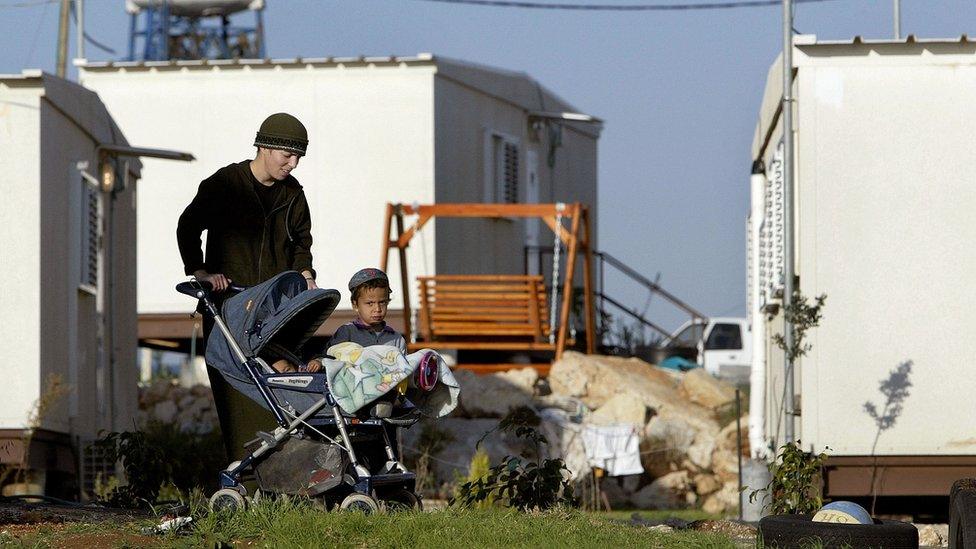
There are dozens of unauthorised settlements, known as outposts, across the West Bank
Palestinians say the presence of settlements in the West Bank and East Jerusalem - land they seek for a future state - make such a state with contiguous territory impossible. They have demanded Israel freeze all settlement activity as a precondition for resuming peace talks.
Palestinians' freedom of movement is also restricted by hundreds of checkpoints, roadblocks and other obstacles used to protect both settlements and Israel from militants.
Is Palestinian-Israel peace plan out of reach?
Israel says the Palestinians are using the issue of settlements as a pretext to avoid direct talks.
Under the 1993 Israel-Palestinian Oslo peace accords, the issue of settlements was to be deferred until final status talks - a reason why Israel objects to pre-conditions and UN resolutions on the matter.

What has changed under Donald Trump?
In two words - a lot.
From the beginning of his presidency in January 2017, Donald Trump has displayed a much more tolerant attitude towards settlement activity than his predecessor, Barack Obama.
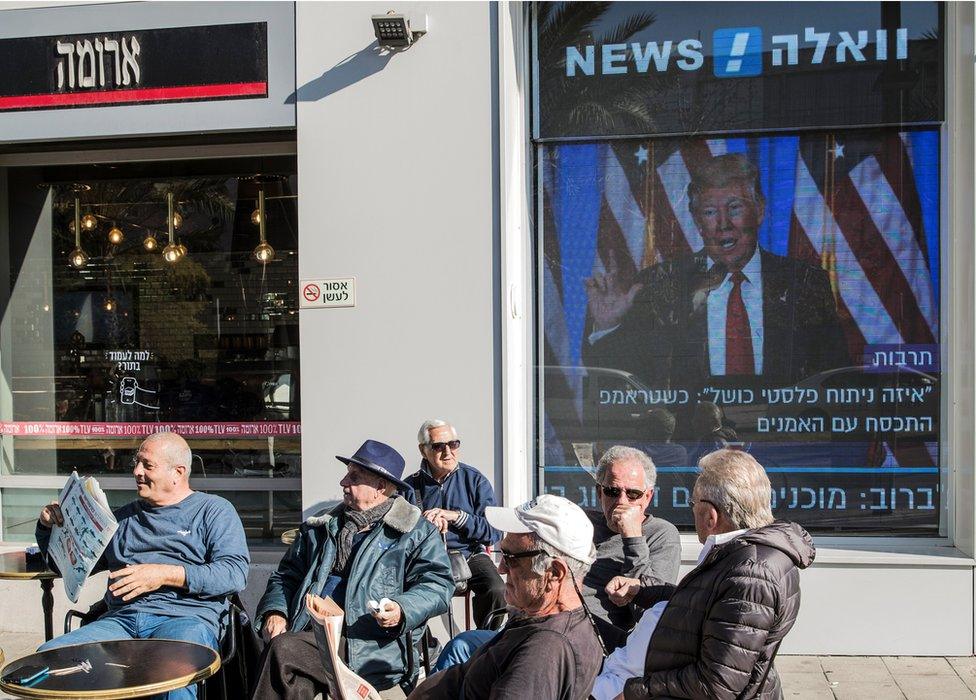
Donald Trump has rarely criticised Israeli settlement activity
Up until Mr Trump took office, the US had described the settlements as "illegitimate", refraining from calling them "illegal" since the Carter administration in 1980.
A UN Security Council resolution in December 2016 said settlements had "no legal validity, external and constitute[d] a flagrant violation under international law". However, like previous resolutions on Israel, those adopted under Chapter VI of the UN Charter are not legally binding.
On 18 November 2019, US Secretary of State Mike Pompeo said the Trump administration was reversing the stance of the previous administration.
"The establishment of Israeli civilian settlements is not, per se, inconsistent with international law," Mr Pompeo said.
The Trump administration has also overturned decades of US policy by recognising Israeli sovereignty over East Jerusalem and the Golan Heights - to the outrage of Palestinians - making the future of Jewish settlements there much more secure.
Israeli Prime Minister Benjamin Netanyahu has also gone further than ever before by declaring his intention to effectively annex all Jewish settlements in the West Bank, as well as the Jordan Valley and northern Dead Sea in the eastern West Bank, without fear of rebuke by the US. According to media reports, the plan is consistent with Mr Trump's vision for an Israeli-Palestinian peace agreement, expected to be released in the near future.
The Palestinians have warned that if Israel extends sovereignty to the settlements, it will kill the peace process.

What makes Jerusalem a special case?
Even if agreement could be reached on settlements in the West Bank, the issue of settlements in East Jerusalem is even more thorny.
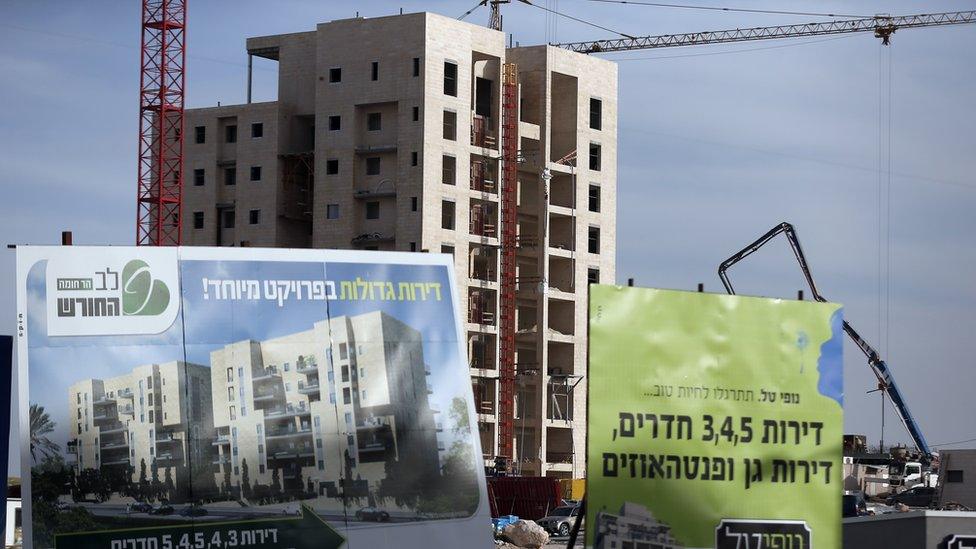
Israel does not regard places like Har Homa in East Jerusalem as settlements
Israel regards East Jerusalem as its eternal, indivisible capital and does not consider the sector in any way occupied - and by extension, it does not regard Jewish neighbourhoods there as settlements.
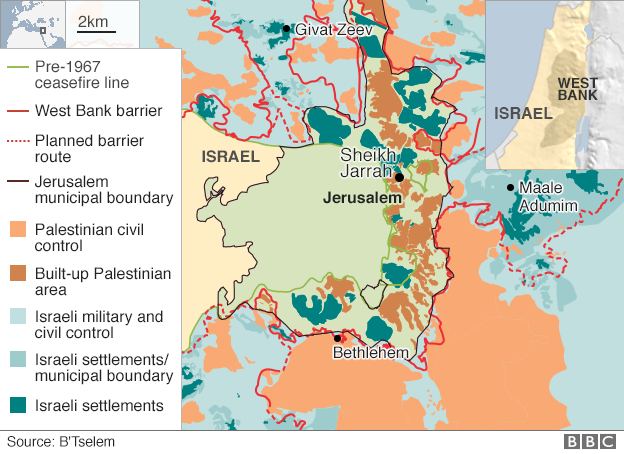
Israel officially extended sovereignty over East Jerusalem in 1980, in a move not accepted internationally until Washington broke rank and recognised the whole of Jerusalem as Israel's capital in 2017. Only Guatemala and Honduras have followed suit (Paraguay did, but reversed its decision).

So is a deal on settlements impossible?
It looks increasingly likely. For years, Israel said it was prepared to make "painful concessions" for peace - code for withdrawal from occupied territory and an accompanying removal of some smaller settlements. It previously demolished settlements in Sinai and Gaza, and four small sites in the West Bank in 2005, during pull-outs.
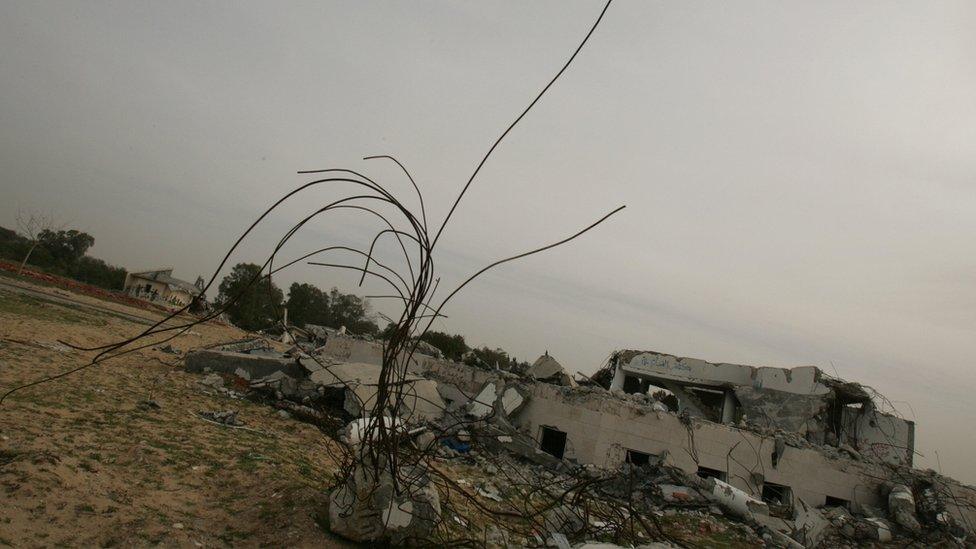
Israel demolished its settlements in Gaza before it withdrew in 2005
While Israel and the Palestinians agreed to decide upon the fate of existing settlements, and Jerusalem, in the final stage of peace talks, the chances of reaching that point seem further away than ever.
Mr Netanyahu has crystallised his position, vowing never to dismantle settlements - and if he follows through with his plan to annex them, it will effectively take the issue off the table as far as Israel is concerned.

Are settlements illegal under international law?
Most of the international community, including the UN and the International Court of Justice, say the settlements are illegal.
The basis for this is the 1949 Fourth Geneva Convention, external which forbids the transfer by an occupying power of its people to occupied territory.
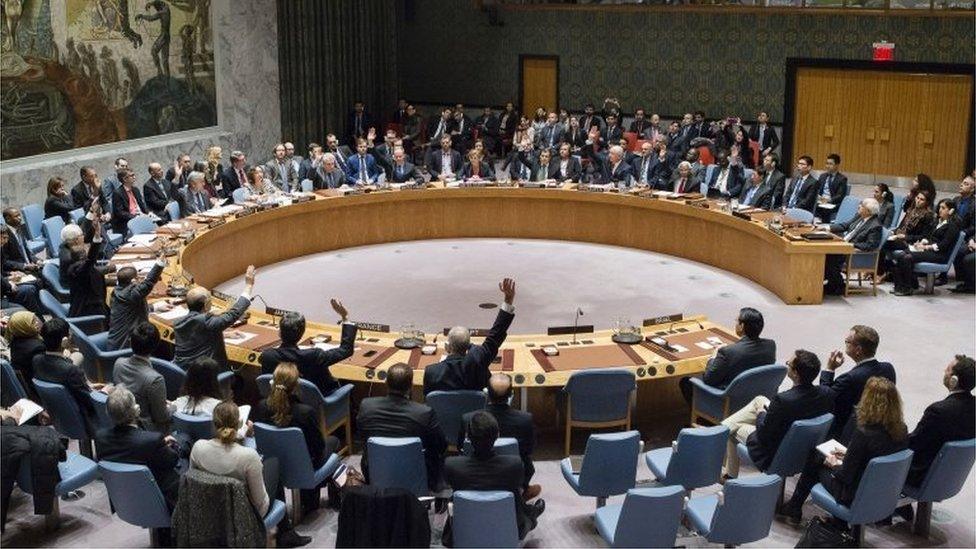
Israel and the UN have repeatedly clashed over the issue of settlements
However, Israel says the Fourth Geneva Convention does not apply de jure to the West Bank because, it says, the territory is not technically occupied.
Israel says it is legally there as a result of a defensive war, and did not take control of the West Bank from a legitimate sovereign power.
It says the legal right of Jewish settlement there as recognised by the 1922 League of Nations Mandate for Palestine was preserved under the UN's charter.